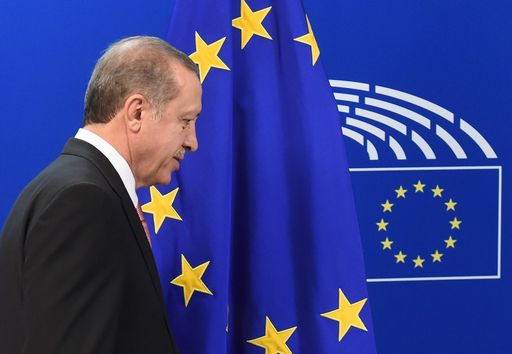One of the darkest chapters in Türkiye’s democratic history—marked by the suspension of the Constitution, the dissolution of Parliament, and the execution of a sitting prime minister—took place 65 years ago.
On May 27, 1960, the Turkish military carried out the country’s first coup.
Following the transition to a multi-party political system in 1946, the Democrat Party (DP) came to power in the 1950 elections, winning 53 percent of the vote and securing 416 parliamentary seats.
The Republican People’s Party (CHP), which had ruled for 27 years, was reduced to just 69 seats. The DP became the first party to come to power through free elections.
Celal Bayar became President, Refik Koraltan was elected Speaker of Parliament, and the first Menderes cabinet was formed on May 22, 1950.
The new government quickly initiated reforms and, in June 1950, retired top-ranking officers in the Turkish Armed Forces on the suspicion of a coup plot.
Among them were Chief of General Staff General Abdurrahman Nafiz Gurman, commanders of the military branches, 15 generals, and 150 colonels.
During the DP’s tenure, the concept of "national will" was emphasised. The number of tractors in agricultural use increased significantly, resulting in a rise in crop production. The government also made notable strides in education, industry, transportation, and healthcare.
Then, tensions escalated between the DP and CHP. In 1953, a controversial bill enabling the transfer of CHP's assets to the Treasury was passed, deepening the political divide.
The DP further solidified its hold on power in the 1954 elections, winning 57 percent of the vote and 502 seats, while the CHP was left with only 31 deputies. Criticism was increasingly directed toward Ismet Inonu, whose opposition tactics grew more aggressive.
‘You’re choking a prime minister—what more freedom could there be?’
While the DP consolidated its authority, signs of an economic crisis began to emerge. Tensions also grew between the government and the military, though Prime Minister Adnan Menderes sought to ease them.
Amid internal party disagreements, 19 MPs broke away to form the Liberty Party. The economic downturn caused widespread public discontent.
In September 1955, following rumours of an explosion near Ataturk’s birthplace in Thessaloniki, violent riots broke out in Ankara, Istanbul, and Izmir. Shops, places of worship, and cemeteries belonging to minorities were targeted, leading many to emigrate from Türkiye.
University students launched protests against the government. In a demonstration in Istanbul’s Beyazit Square, Turan Emeksiz, a forestry student, was fatally shot in the head, reportedly by police, leading to further unrest. Martial law was declared in Istanbul and Ankara.
On May 5, 1960, students gathered in Kizilay Square under the code "555K" (5th of the 5th month at 5 p.m.). Menderes tried to speak to the crowd, but a student grabbed him by the throat. When asked what he wanted, the student replied, "Freedom." Menderes responded with the now-iconic line:
"You’re choking a prime minister—what more freedom could there be?"
On May 21, military cadets conducted a silent march to the Victory Monument in Ankara, signalling a deepening military disapproval of the government.
Coup Announcement via radio
Citing concerns of growing instability, a group of 38 military officers—calling themselves the National Unity Committee—seized control on the morning of May 27, 1960. The coup was announced in a radio broadcast by Colonel Alparslan Turkes.
"Due to the current crisis in our democracy and the recent tragic events, the Turkish Armed Forces has taken control of the state to prevent civil strife and to enable fair and free elections under a neutral administration."
The Constitution and Parliament were dissolved, and political activity was suspended. President Celal Bayar, Prime Minister Adnan Menderes, cabinet ministers, MPs, senior military figures including Chief of General Staff Rustu Erdelhun, and other high-ranking officials were arrested.
Menderes, detained in Kutahya by Colonel Muhsin Batur, was transferred to Yassiada, a remote island in the Sea of Marmara where he and other DP members were imprisoned and tried.
Yassiada becomes Democracy and Freedom Island
The infamous Yassiada trials began on October 14, 1960, and concluded on September 15, 1961.
Merged under the main charge of “violating the Constitution,” the trials targeted 592 individuals from the former ruling Democratic Party.
Death sentences were initially sought for 228 of them—not 288 as sometimes misreported.
The High Tribunal handed down 15 death sentences, with former President Celal Bayar, Prime Minister Adnan Menderes, and Ministers Fatin Rustu Zorlu and Hasan Polatkan among those convicted. While the verdicts for all four were unanimous, Bayar’s sentence was later commuted to life imprisonment due to his advanced age.
Other prominent figures—including Parliament Speaker Refik Koraltan, senior MPs, ministers, and military officers—received sentences ranging from life imprisonment to lesser terms.
Despite widespread international appeals, including requests from global leaders and Pope John XXIII, only Bayar and a few others outside the top echelon had their sentences commuted. Fatin Rustu Zorlu and Hasan Polatkan were executed on September 16, 1961, at Yassiada. The next day, following a failed suicide attempt, Adnan Menderes was executed at 13:21 on İmralı Island, having been declared medically fit by military doctors.
In a significant moment of national reckoning, Türkiye’s Parliament passed a law on April 11, 1990, to restore the honour and reputation of Menderes, Zorlu, and Polatkan. Their remains were reinterred with full state honours at a monumental mausoleum in Istanbul on September 17, 1990.
To symbolise a shift from suppression to remembrance, Yassiada was renamed Democracy and Freedom Island in 2020, on the 60th anniversary of the coup. Once a site of injustice, the island has since been transformed into a public museum and educational centre, reflecting Türkiye’s turbulent political history and democratic resilience.
What was once a courtroom of condemnation now stands as a space for dialogue, memory, and renewal.
















